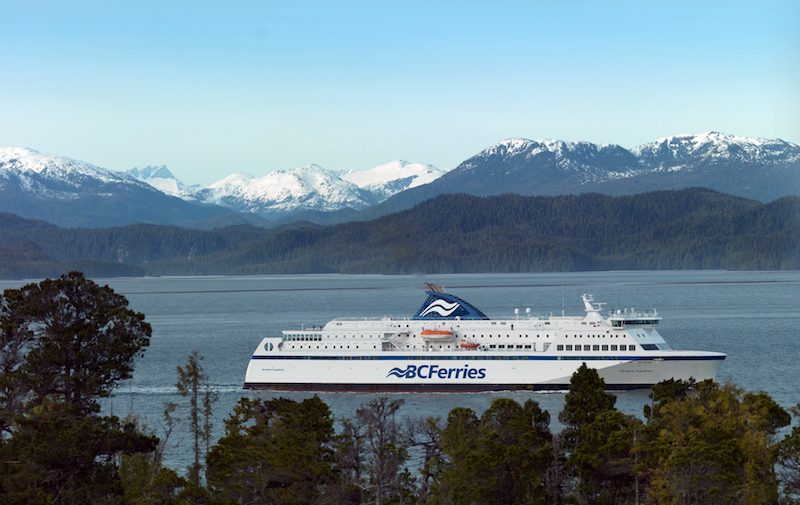Firms in Fed’s Beige Book Fret Over Any Lengthy Baltimore Port Closure
(Bloomberg) — The closure of one of the East Coast’s busiest ports after the collapse of Baltimore’s Francis Scott Key Bridge has so far not led to broad price increases,...


Image (c) British Columbia Ferry Services
Canada’s BC Ferries is moving forward with plans to build three car and passenger ferries to run on LNG fuel as the company looks to decrease fuel costs and cut emissions.
In a statement Monday, BC Ferries announced that the company has issued a Request for Proposals (RFP) to five pre-qualified shipyards for the construction of three intermediate class ferries. In the RFP, BC Ferries has stipulated that the three vessels -two with a 145 car and 600 passenger capacity and the third with a 125 car and 600 capacity- be designed to operate as dual-fuel capable, specifically LNG and diesel.
In 2012, the company spent $121 million on fuel, according to the statement.
“We expect to operate these new intermediate class ferries with LNG, which will reduce our fuel costs, and in turn help reduce the upward pressure on fares. In addition, we expect to reduce our environmental footprint with a cleaner fuel source,” said Mark Wilson, BC Ferries’ Vice President of Engineering. “While other ferry operators have already adopted LNG as a fuel source, these will be the first ships in our fleet to utilize this natural resource which is abundant here in British Columbia.”
BC Ferries says that of the nine shipyards that responded to a Request for Pre-Qualification, five have been invited to participate further in the procurement process to design and build the vessels. The shipyards invited include Fiskerstrand Blrt of Norway, Flensburger Schiffbau-Gesellschaft of Germany, Remontowa Shipbuilding of Poland, Seaspan Vancouver Shipyards of Canada and Sefine Shipyard of Turkey.
The two 145 car vessels will serve to replace two aging ferries in the company’s fleet. The third, the 125 car capacity vessel, will be used to augment peak and shoulder season service on select routes and to provide refit relief.
The RFP closes at the end of February 2014 and after a detailed evaluation of the proposals received, BC Ferries expects to award a contract to the successful bidder in the spring of 2014. The two-145 vehicle ferries are expected to enter service in 2016 and the 125-vehicle ferry is expected to be in service in 2017.
“As we embark on this next phase of our newbuild program, these vessels will set a new standard of efficiency for the fleet,” said Wilson. “Currently we operate 18 classes of vessels in a fleet of 35 ships. This project is the stepping stone to eventually bring the fleet into potentially five classes of vessels. Standardization of vessel classes will achieve cost savings by building ships with standardized equipment and systems, which will save maintenance and training costs, realize service flexibility across various route options, and interoperability between vessels.”
BC Ferries is one of a handful of North American operators looking to build or convert vessels to use of LNG. Staten Island Ferries and Washington State Ferries are also studying options to retrofit their vessels from diesel to LNG fuel, while the Quebec Ferries Company has also contracted for three new LNG ferries.
Join the gCaptain Club for curated content, insider opinions, and vibrant community discussions.


Join the 105,937 members that receive our newsletter.
Have a news tip? Let us know.
Access exclusive insights, engage in vibrant discussions, and gain perspectives from our CEO.
Sign Up




Maritime and offshore news trusted by our 105,937 members delivered daily straight to your inbox.



Essential news coupled with the finest maritime content sourced from across the globe.
Sign Up